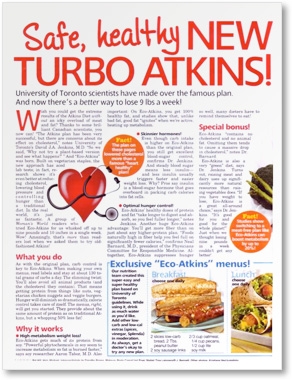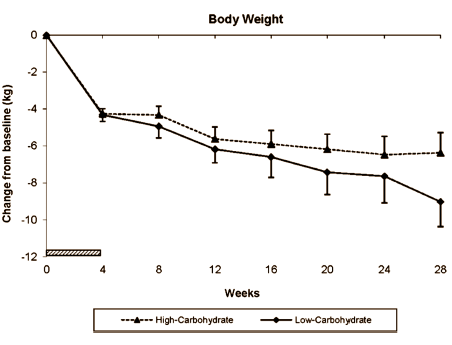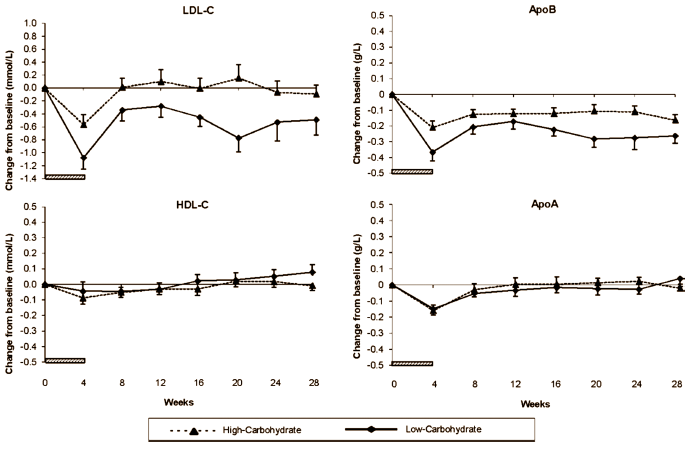|
Definition: "An ergogenic aid is any substance or phenomenon that enhances performance "
|
|
||||||||
02.05.2014 |
|
|
Eco-Atkins: the Atkins diet, but then vegan
In 2009 Canadian nutritionists introduced the world to the Eco-Atkins diet: a strictly vegan low-carb, high-protein diet that causes weight loss and improves cholesterol balance. [Arch Intern Med. 2009 Jun 8;169(11):1046-54.]
Fellow researchers reacted with enthusiasm. [Arch Intern Med. 2009 Jun 8;169(11):1027.] The Atkins diet is recognised as being very successful when it comes to weight loss, but respected nutritionists have criticised it as not being safe for people at risk from cardiovascular disease. Eco-Atkins did not have these problems. "Adding a Big Dash of 'Health' to Low-Carbohydrate Diets", was the headline in the New York Times of an article on the Eco-Atkins diet. [nytimes.com June 9, 2009]
"But the truth is that Atkins has always been the leader in low-carb nutrition with its scientifically validated approach to low-carb weight loss and weight control. Obesity, and obesity related health problems, are at epidemic levels and Atkins has made all the significant contributions to weight loss through low-carb nutrition and science. The imitators are just that – imitators, and free riding on Atkins reputation for success and science."
The Canadian nutritionists, who work at the university of Toronto, ignored the criticisms. They continued their research and recently published the results of a trial in which they put a small group of slightly overweight subjects with high cholesterol levels on the Eco-Atkins diet for six months.
If you follow the diet to the letter then 31 percent of the energy in your diet comes from protein (mainly gluten, but also soya and nuts), 46 percent from fats (mainly vegetable oil and soya products) and 26 percent from carbohydrates.
A control group was put on a lacto-ovo vegetarian diet. In that diet the energy was derived for 16 percent from protein, 25 percent from fat and 58 percent from carbohydrates.
Both groups lost weight. This was mainly because the subjects, although they were allowed to eat as much as they liked, consumed fewer kilocalories. Both diets satiated hunger – one of the reasons being that both diets were high in fibre.
But the calorie intake of the Eco-Atkins group decreased by 248 kilocalories more than that of the control group. Which is why the Eco-Atkins group lost more weight than the control group did.
The Canadians didn't release much information on their subjects' body composition, but reading between the lines we were able to put together the figure above. Weight loss occurs above all in the body's fat reserves.
Both diets improved blood pressure, insulin balance and cholesterol balance. But the Eco-Atkins diet also resulted in a bigger decrease in 'bad cholesterol' LDL than the control diet did.
ApoA = Apolipoprotein A1, the most important component of HDL; ApoB = Apolipoprotein B, the most important component of LDL.
"A weight loss diet which reduced carbohydrate in exchange for increased intakes of vegetable sources of protein, such as gluten, soy and nuts, together with vegetable oils offers an opportunity to improve both LDL-C and body weight, both being risk factors for coronary artery disease", the researchers conclude. "Further trials are warranted to evaluate low-carbohydrate diets, including more plant-based low carbohydrate diets, on coronary artery disease risk factors and ultimately on coronary artery disease."
Source:
More: |
|




